ZW Blog 1 – Recycling Masks and Making Compost
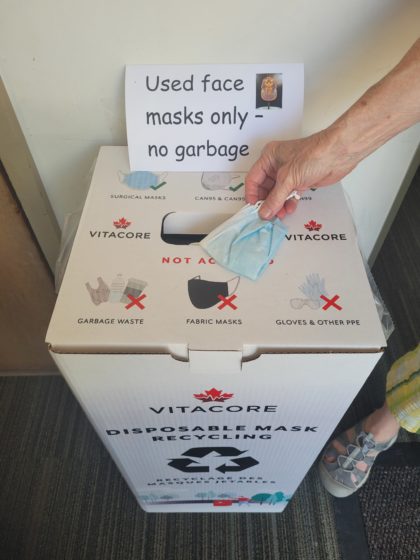
ZW at UCV Blog Post 1 –
Recycling Masks and Creating Good Compost
If you haven’t yet noticed, it but thanks to Karen Bartlett and Yvonne Marcus, we have a box where you can deposit used face masks. And yes, you can bring ones from home and add them. We’ve already filled one box and with congregational administrator, Casey’s, support, Karen is prepared to continue donating the cost and organizing getting a new box when one is full. It’s just inside Hewett Hall.
Karen says, “Thank you to Casey for being the point person to pass along the information when the box was ¾ full, giving us time to organize the new box.
Also thanks to everyone who is using the box. A quick audit check confirmed that only masks were in the box and not other garbage.”
You Can Do It! We Can Help!
Karen (and the ZW team) want to share this as a good example that anyone at UCV can take on a small project and “make it so.”
Here are some quotes found by googling “zero waste quotations” that were read at the start of our meeting. The theme is “just do it”! Or as Home Hardware says: You can do it. We can help
The world is changed by your example not by your opinion.
To do good you actually have to do something.
Use it up, wear it out, make it do, or do without.
Waste is a design flaw.
If you have an idea related to zero waste and want to know how to go about it and who you might need to check in with, we’d be *very* happy to lend support!
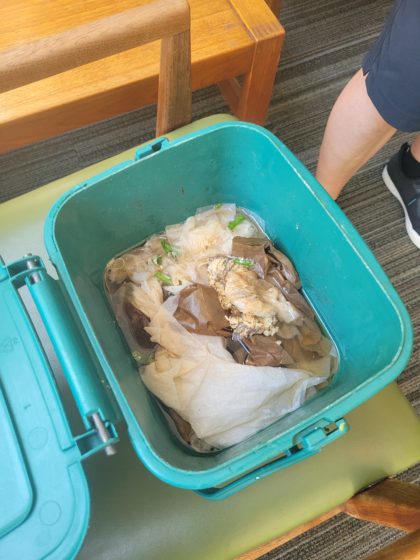
Compost bins. We’re about to enter “peak dry leaves” season when our stalwart gardeners rake up the barrels and barrels full of leaves. As well as the bins for organic waste that go to the city, we have 6 round black bins with some hardy red wriggler worms in them that can, with a little help, create “black gold” compost for our gardens. Mary Bennett has been chief compost enthusiast and worker, but got behind during the time we weren’t regularly meeting in person. We need your help to get the red wrigglers healthy and working again, and the key thing is they need some food (vegetable and fruit scraps especially, although they seem to love their coffee!) and, even more importantly, water.
Our team are all going to take turns taking out the green counter top bin in Hewett Centre on Sundays. A quick way to add moisture, is to fill it 2/3 or so full with water before taking out. (Full might make it difficult to walk easily without spilling). As well, we’re going to make a concerted effort over next month or two (before the damp weather returns) to regularly fill one of the tall white containers near Hitschmanova entrance with water and add to the bins.
Right now it’s very dry, so if you can help, you’ll find you’ll need to pour in slowly or add 1/4 of a bucketful to each of 4 bins. You can do this any time you’re on site.
No meat or bones, but the red wrigglers are ok with napkins, coffee filters, (most) tea bags.
(Speaking of which, let’s not use the silky ones, ok?)
The black round bins are on the Fremlin (east) side adjacent to the lane. There’s one right near the city waste bins as well.
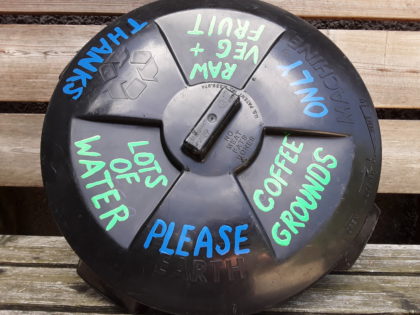
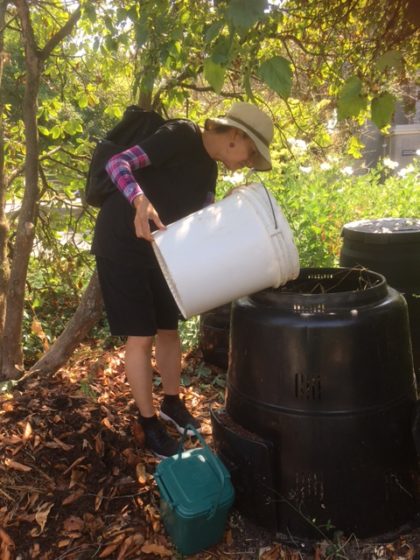


More information about our Zero Waste (part of Enviro Team) Circle can be found here.
vancouverunitarians.ca/zero-waste











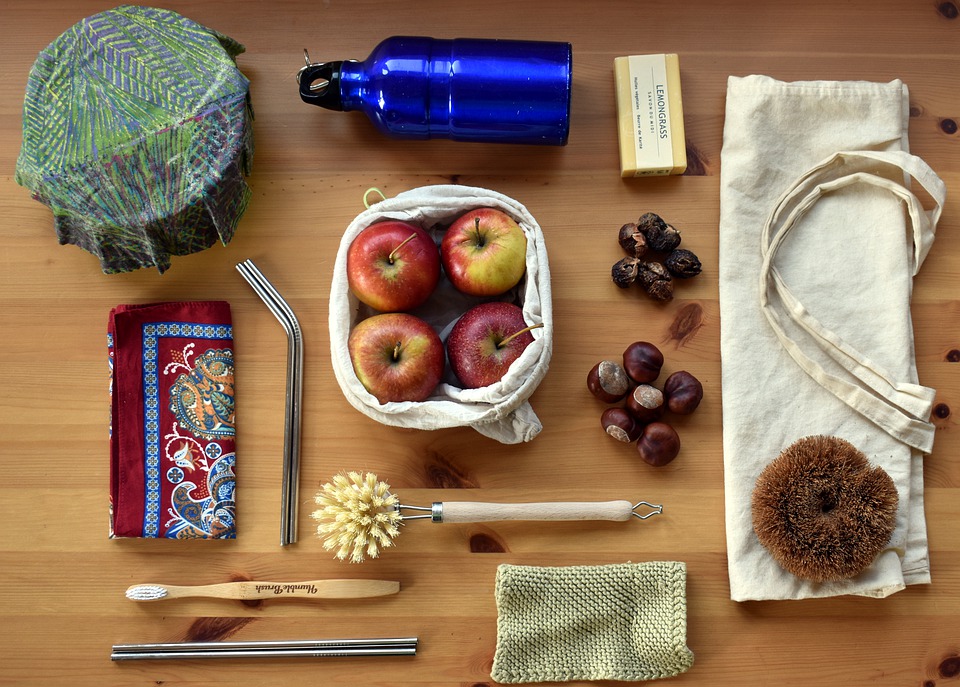




You must be logged in to post a comment.